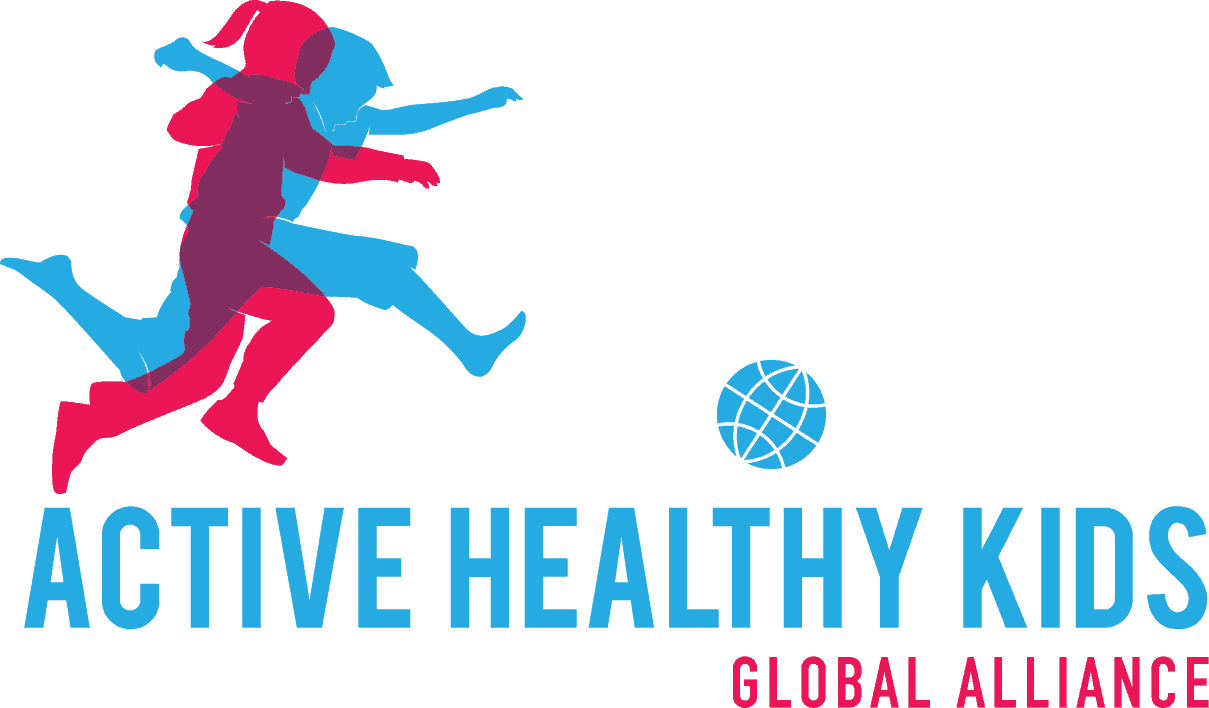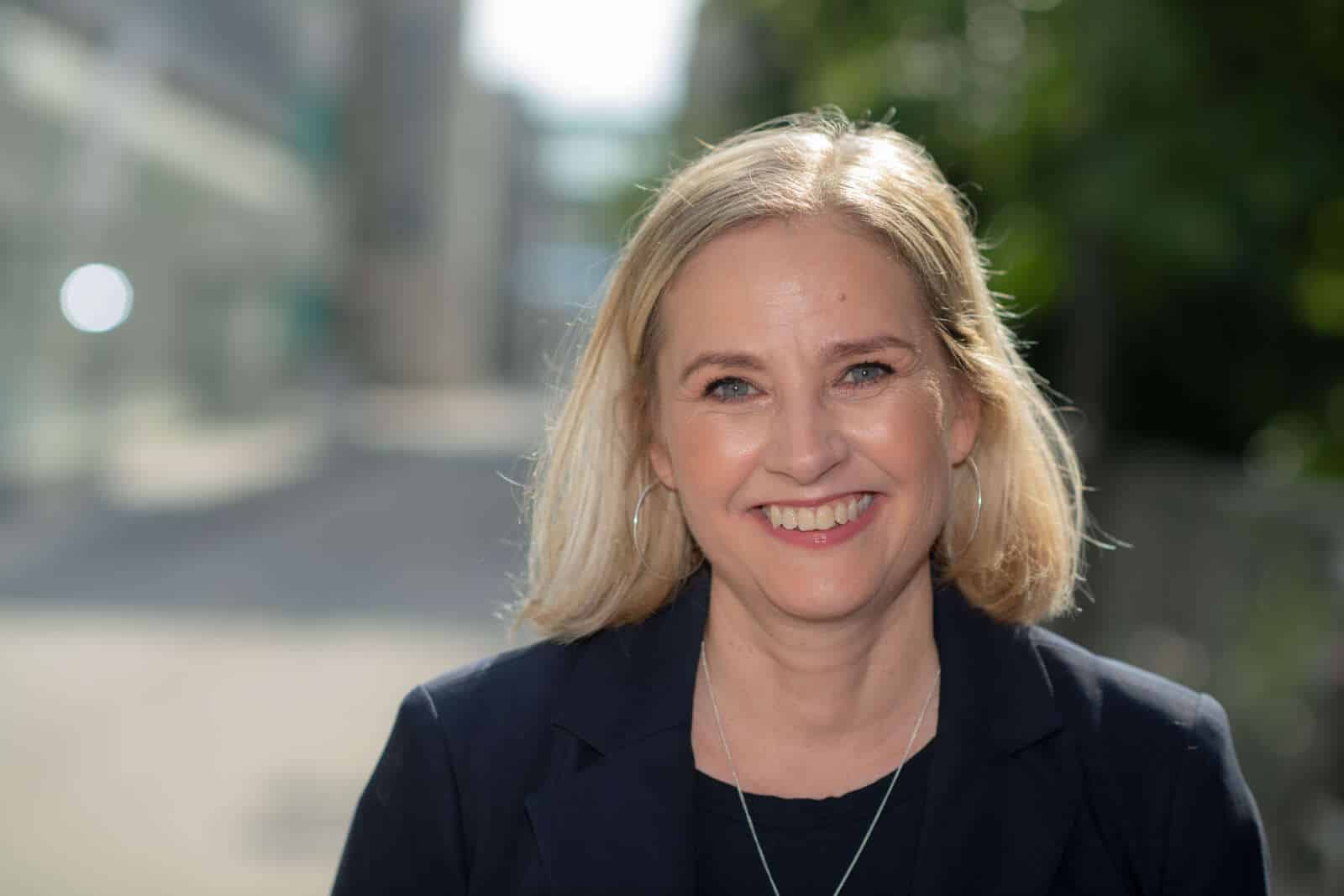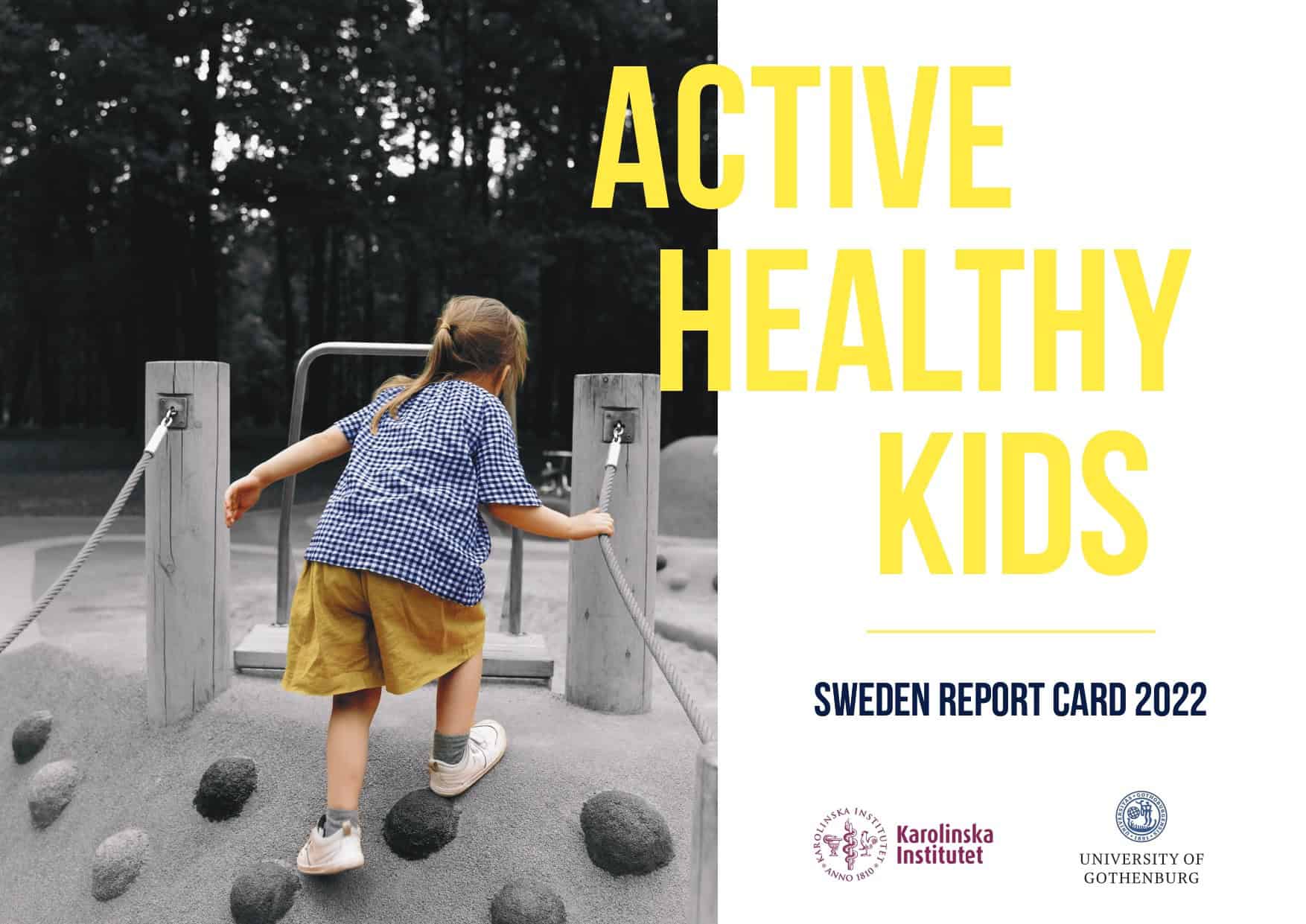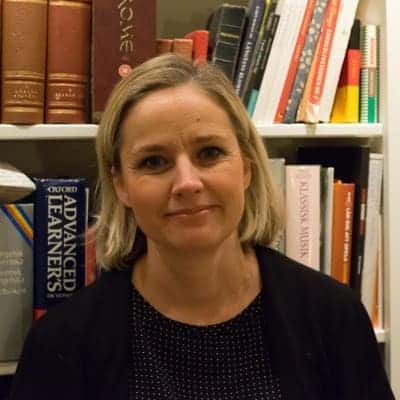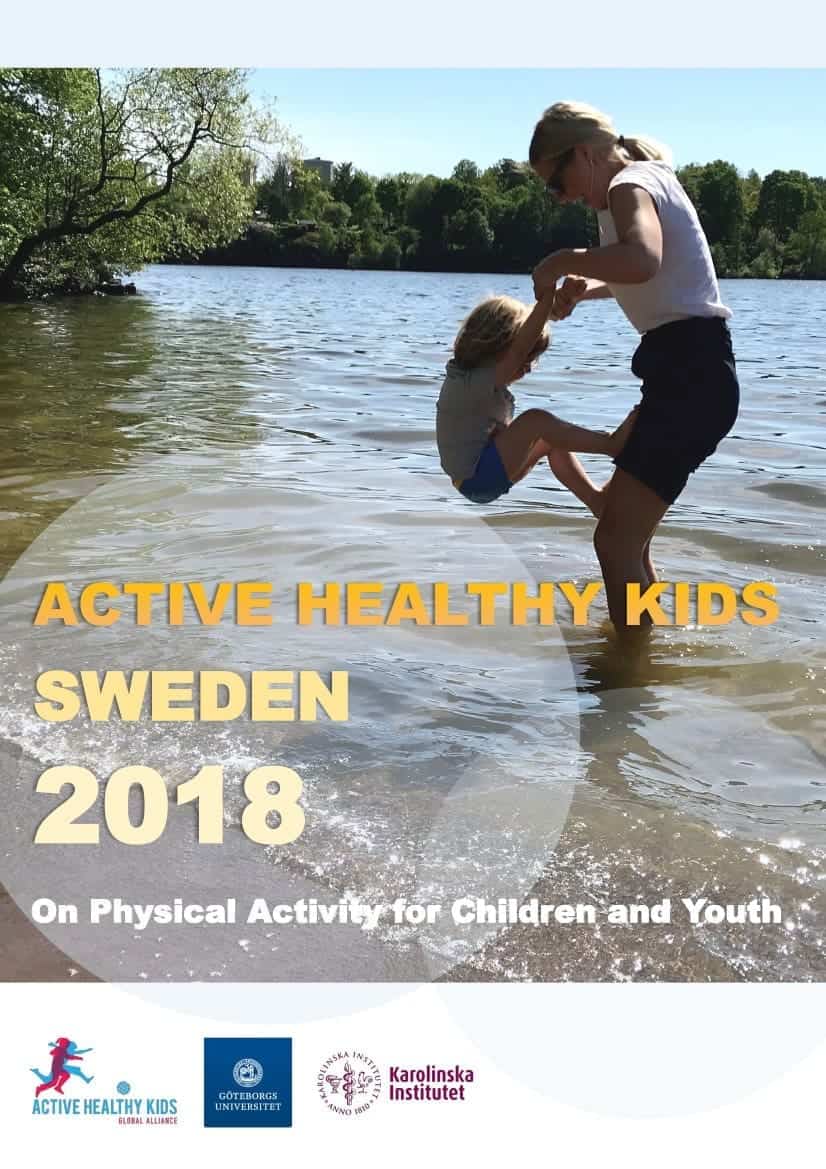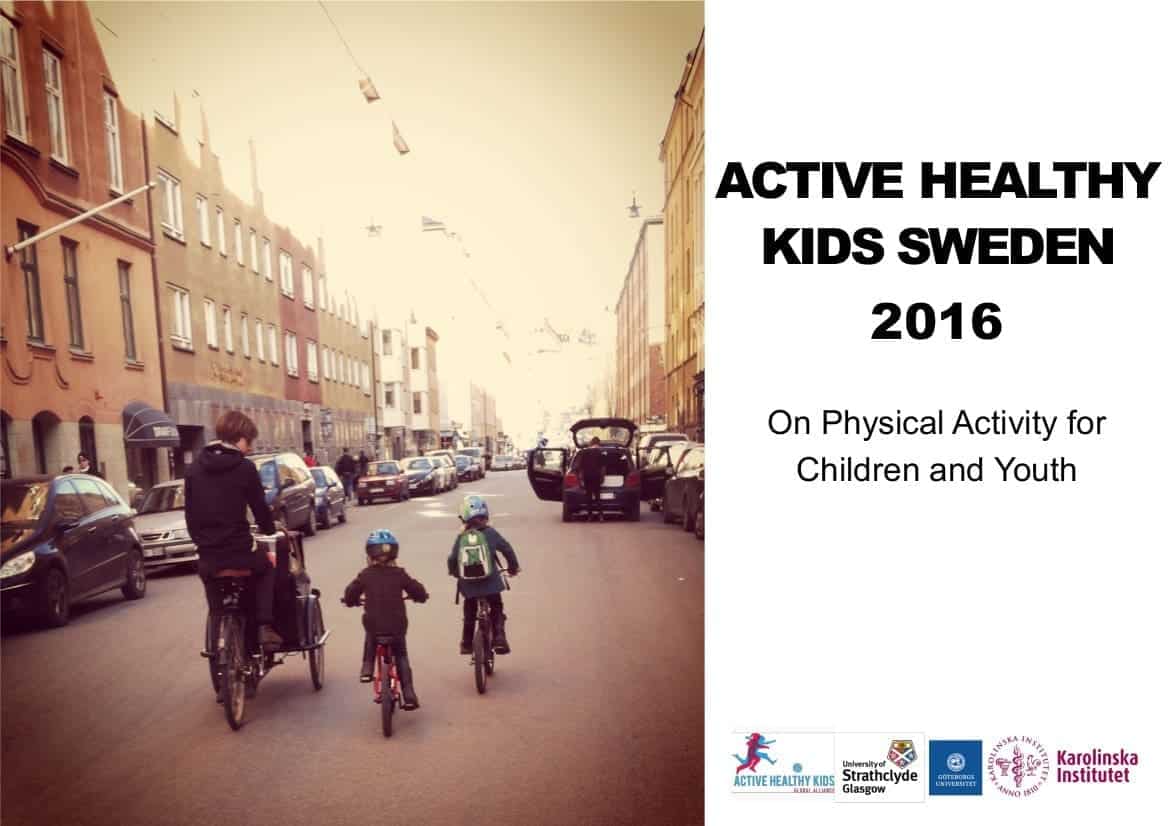
Report Card Leaders
Marie Löf, PH.D.
Marie Löf is a Professor and group leader (>25 people) at the Department of Medicine Huddinge, Karolinska Institutet, Sweden, since 2011. Her research group studies early-life factors important for the establishment of childhood obesity with special emphasis on physical activity. One key area for the group is how digital health can support obesity prevention, and healthier lifestyles. During the last years, they have developed and evaluated several digital interventions to promote healthy eating and for obesity prevention that are now under implementation at scale in routine health care (e.g., MINISTOP for child health care, HealthyMoms for maternity health care). Current work includes e.g. a digital platform to improve self-management and treatment of gestational diabetes. She have a particular interest in making digital interventions scalable and accessible for high-priority populations. The research group also conducts research in Big Data and technology-driven Citizen science. She is also the coordinator of the Centre for Nutrition, a research centre including several research groups covering experimental to public health research.
Christine Delisle Nyström, PH.D.
Christine Delisle Nyström is an Assistant Professor in the IMPACT (Innovative use of mobile phones to promote physical activity and nutrition across the lifespan) research group at the Department of Medicine Huddinge, Karolinska Institutet. Her research focuses on the two areas: (i) the prevention of childhood overweight and obesity from a young age focusing on interventions and (ii) surveillance of lifestyle behaviours in early childhood. Two current projects she is leading are Health4Life and Pep Report Special Olympics. Health4Life is a randomized controlled trial aiming to investigate if a 16-month parent focused digital intervention can improve key dietary markers, increase total physical activity, and decrease screen time in 18-month-old children. Pep-Report Special Olympics is a collaboration with Parasport Sweden with the overall aim to map dietary and physical activity behaviours in Swedish children with intellectual disabilities.
Report Card Grades
- Overall Physical Activity: D+**
- Organized Sport and Physical Activity: B+
- Active Play: INC
- Active Transportation: C
- Sedentary Behavior: D
- Physical Fitness: C+
- Family and Peers: B+
- School: B
- Community and Environment: A+
- Government: B
Report Card Leaders
Marie Löf, Ph.D.
Marie Löf is Associate Professor, senior researcher and group leader at the Department of Biosciences and Nutrition, Karolinska Institutet, Sweden, since 2011. Her research group studies early-life factors important for the establishment of childhood obesity with special emphasis on physical activity. Another area of Marie’s research concerns development and evaluation of methodology important for nutritional assessments. This work includes methodology to assess intake of foods and energy, physical activity and body composition. Recently this interest has primarily focused on the possibilities of using telecommunication technologies, such as mobile phones, to improve dietary and physical activity assessments in different populations with focus on children. One of her recent studies is the so called MINISTOP trial which is a mobile phone based intervention aiming at improving dietary habits, increasing physical activity and decreasing sedentary behavior in four-year-old children.
Christine Delisle Nyström, Ph.D.
Christine Delisle Nyström is a post-doctoral research fellow in the IMPACT research (Innovative use of mobile phones to promote physical activity and nutrition across the lifespan) at the Department of Biosciences and Nutrition, Karolinska Institutet since 2018. Her PhD thesis focused on obesity prevention through the promotion of healthy lifestyle behaviours in pre-school aged children, the MINISTOP randomized controlled trial. Thereafter, she was a post-doctoral research fellow in the HALO research group at the Children’s Hospital of Eastern Ontario where her research focused on secondary data analysis within the Canadian Assessment of Physical Literacy Project. Currently, her research focuses on the promotion of healthy lifestyle behaviours in the early years, with a specific focus on infancy.
Report Card Grades
- Overall Physical Activity: D+
- Organized Sport and Physical Activity: B+
- Active Play: INC
- Active Transportation: C
- Sedentary Behavior: C+
- Physical Fitness: INC
- Family and Peers: INC
- School: C+
- Community and Environment: A
- Government: B
Related Links
Top Three Priorities
- Include the objective measures using accelerometry collected by Riksmaten (national study conducted by the National Food Administration in 2016.) We were hoping to include it this time, however, unfortunately, they had not finalized all their data processing yet.
- Improve the indicators given the grade “Inc”. For instance, a national survey called Generation Pep is conducted for the first time 2018 and the plan is to repeat it annually. Here we hope to include questions for the indicator “Family and peers” for instance.
- Work within the team trying to improve our understanding why we in Sweden have quite low grades for overall physical activity and sedentary behavior although the indicators governmental policies and school are quite high.
Report Card Leaders
Marie Löf, Ph.D.
Marie Löf is Associate Professor, senior researcher and group leader at the Department of Biosciences and Nutrition, Karolinska Institutet, Sweden, since 2011. Her research group studies early-life factors important for the establishment of childhood obesity with special emphasis on physical activity. Another area of Marie’s research concerns development and evaluation of methodology important for nutritional assessments. This work includes methodology to assess intake of foods and energy, physical activity and body composition. Recently this interest has primarily focused on the possibilities of using telecommunication technologies, such as mobile phones, to improve dietary and physical activity assessments in different populations with focus on children. One of her recent studies is the so called MINISTOP trial which is a mobile phone based intervention aiming at improving dietary habits, increasing physical activity and decreasing sedentary behavior in four-year-old children.
Testimonial
"I enjoyed every minute of the work leading the Swedish Report Card team for the Global Matrix 3.0. This was the second time for us and now we know how to do it! All team members have already said yes to the 4.0 version and are eager to start. I am also very impressed with the organization with all 49 countries. There is a great potential with this network- together we have the possibility to improve children’s health." - Marie Löf, Ph.D. and Christine Delisle Nyström, Ph.D.
Conference Abstract: Movement to Move
Results from Sweden’s 2018 Report Card on Physical Activity for Children and Youth
Marie Löf, Christel Larsson, Christina Alexandrou, Bettina Ehrenblad, Ulf Eriksson, Marita Friberg, Maria Hagströmer, Anna Karin Lindroos, Gisela Nyberg, Christine Delisle Nyström
Introduction: The consolidation of physical activity and sedentary behavior data is extremely important, in order for researchers, policy makers, and key stakeholders to identify problem areas and intervene appropriately.
Methods: Sweden’s 2018 report card included the ten core physical activity indicators that are common to the Global Matrix 3.0 as well as an additional indicator, diet. Each of the 11 indicators were assigned a grade from F to A+ representing the percentage of children and youth meeting a defined benchmark. If there was no data or insufficient data for an indicator it was marked as incomplete.
Results: Three of the 11 indicators, i.e., active play, family and peers, and physical fitness were assigned a grade of incomplete due to the lack of available data for these indicators, thus showing that knowledge and research gaps exist.
| Indicator | Grade |
| Overall physical activity | D+ |
| Organized sport participation | B+ |
| Active play | INC |
| Active transportation | C |
| Sedentary behaviors | C+ |
| Physical fitness | INC |
| Family and peers | INC |
| School | C+ |
| Community and environment | A |
| Government | B |
| Diet | C |
Conclusions/recommendations: As the relatively low grades for the 2018 report card have remained virtually unchanged since 2016 for daily behavior indicators, it is vital that key stakeholders begin to plan how to appropriately intervene in order to increase overall physical activity and decrease sedentary time in Swedish children and youth. In Sweden community and environment favor an active lifestyle and the promotion of physical activity. Furthermore, there are strong government initiatives that promote physical activity among children and youth. Despite the conducive environment for physical activity in Sweden, overall physical activity is low and sedentary behavior is high, which indicates a need for a more integrated approach to promote physical activity in Sweden’s children and youth.
Report Card Grades
- Overall Physical Activity: D
- Organized Sport Participation: B+
- Active Play: INC
- Active Transportation: C+
- Sedentary Behaviors: C
- Family and Peers: INC
- School: C+
- Community and Built Environment: B
- Government Strategies and Investments: B
Related Links
Recommendations
- Have schools promote active transportation, encourage parents not to pick up or drop off their kids. This could be accomplished by promoting walking/biking groups for children who live near each other.
- Promote organized sports/games after school (clubs for children to join).
- Increase collaboration between the health and urban planning sector in order to improve the environment for physical activity.
- Increase physical activity education classes in school (minimum 1.5 hours/week now).
- Further evaluate the implementation, efficacy and effectiveness of national strategies and policies and improve knowledge on the role of active play and family peers in our country.
Report Card Leader
Marie Löf, Ph.D.
Marie Löf is Associate Professor, senior researcher and group leader at the Department of Biosciences and Nutrition, Karolinska Institutet, Sweden, since 2011. Her research group studies early-life factors important for the establishment of childhood obesity with special emphasis on physical activity. Another area of Marie’s research concerns development and evaluation of methodology important for nutritional assessments. This work includes methodology to assess intake of foods and energy, physical activity and body composition. Recently this interest has primarily focused on the possibilities of using telecommunication technologies, such as mobile phones, to improve dietary and physical activity assessments in different populations with focus on children. One of her recent studies is the so called MINISTOP trial which is a mobile phone based intervention aiming at improving dietary habits, increasing physical activity and decreasing sedentary behavior in four-year-old children.
Testimonial
"It has been a great opportunity to be involved in the Global Matrix 2.0. This is the first time Sweden participated and we have learnt a lot. For instance, national surveys in children across different age groups using objective measures for physical activity in Sweden are clearly needed. The project has also provided me with the opportunity to work together with other researchers and representatives from governmental agencies. My team and I are looking forward to develop, refine and extend the data included in the activity report card for the Global Matrix 3.0. Challenge." - Marie Löf, Ph.D.
Conference Abstract: 6th International Congress on Physical Activity and Public Health
Results from the Sweden 2016 Report Card on Physical Activity for Children and Youth
Delisle-Nystrom C, Larsson C, Ehrenblad B, Eneroth H, Eriksson U, Friberg M, Hagströmer M, Lindroos AK, Reilly JJ, Löf M
Background: The Sweden 2016 Report Card on Physical Activity (PA) for Children and Youth is a unique compilation of the existing physical and health related data in Sweden. The aim of this paper is to summarize the procedure and results from the report card. Methods: Nationally representative surveys and individual studies between 2005-2015 were included. Eleven PA and health indicators were graded using the Active Healthy Kids Canada grading system. Grades were assigned based on the percentage of children/youth meeting a defined benchmark (A: 81-100%, B: 61-80%, C: 41-60%, D: 21-40%, F: 0-20%, or incomplete (INC). Results: The assigned grades were: Overall Physical Activity, D; Organized Sport Participation, B+; Active Play, INC; Active Transportation, C+; Sedentary Behaviors, C; Family and Peers, INC; School, C+; Community and the Built Environment, B; Government Strategies and Investments, B; Diet, C-; and Obesity, D. Conclusion: Overall PA is too low and sedentary behavior is too high for almost all age groups in Sweden, even with the many national policies as well as an environment that is favorable to the promotion of PA. We are hoping that this report card will increase stakeholders’ awareness on the need to promote PA and reduce sedentary behavior.
